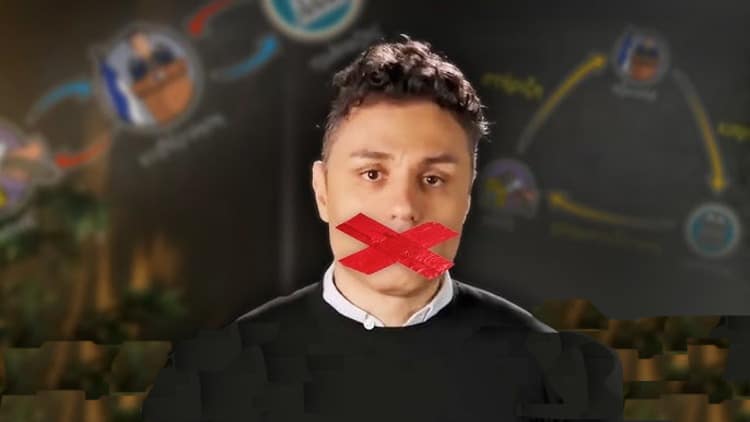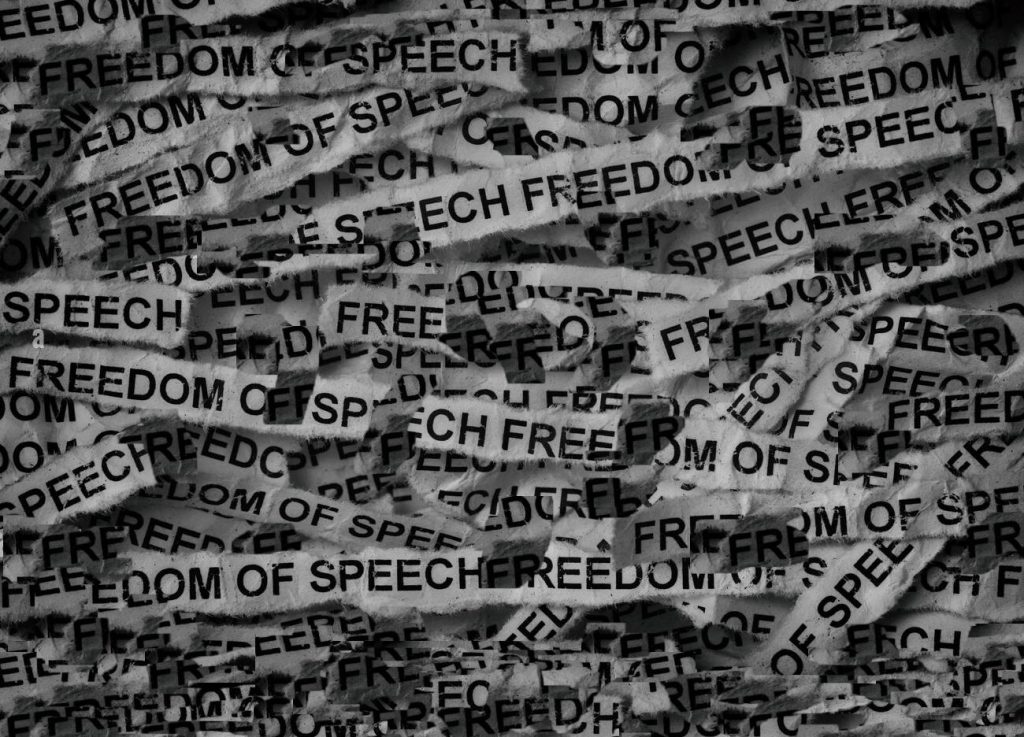The Internet is an essential means of entertainment and a tool for most people. Imagine the world without it—it would be hard. But everything isn’t perfect. There are potential risks (malware), misinformation, and privacy concerns. The latter two are even more hassle, as expected, especially since social media domination. But there is Freedom Of Speech on the Internet, right? Well, that’s another interesting topic of discussion.
Every person, at least in many countries, has the right to choose and express himself, respecting an absolute limit. This limit is other humans’ freedom, life, and personality. You are not allowed (and you shouldn’t) to kill someone because he is different or thinks/acts differently than you when he doesn’t menace you. This is an extreme example, but I think you all get the point. So, while Freedom of Speech on the Internet exists (?), things are not so simple. This is because many people are different, have different cultures, have various ways of thinking, etc. So, it is essential, especially on Social media, that rules and guidelines be applied. While theoretically, these rules are correctly set and widely regarded, they are far from perfect. The reason is simple. Us.
These days, limits might be confusing. Cancel cultures, agendas, propaganda, etc., make things even more challenging. And the Internet, as a popular means, is majorly affected. Unfortunately, I am not an expert in this field to analyze this phenomenon further and adequately, but we all agree that things are challenging. Social media and platforms (especially the popular ones) are heavily affected as large “players” of the Internet. It is not unusual to see primary or lesser content heavily criticized, wrongfully misjudged, or even removed from these platforms for uncertain reasons. This is expected since popular platforms host an extensive user database, and some misjudgments might be applied.
YouTube, X, and TikTok are perfect examples of these practices. Part of their content might be inappropriate for whatever reasons, and sometimes content is removed as a precaution, but the reasons could be wrong. Lately (but not so late, after all), factors that are not tightly related to these platforms play a crucial role in content removal. Remember what we said about limits and Freedom of Speech. I will analyze a perfect example of these factors for a video on a Greek YouTube channel to better understand what I mean. I have to stress enough that this article is not against YouTube. The platform mentioned above is just the mean, not the one to blame. It could happen (and happened and will) on any platform.
Greekonomics is a well-regarded Greek YouTube channel focusing mainly on the financial segment. As a Greek channel, it is tailored to Greek standards and tips and advice oriented to the Greek community. Most of its content is interesting for those who are fascinated by financials. Its host uploads decent content without shady or inappropriate tactics. It is a channel that deserves our respect and attention. Its host, Kosmas Marinakis, is not a random content creator or an influencer who talks about things he is unaware of. He is an Associate Professor of Economic Policy at the University of Singapore. So, he is an expert in his field and a person with deep knowledge of how the economy works.
In his last video (now removed from its channel for reasons that will be clear below in this article but re-uploaded in other channels), called “The Triangle of Intertwining (Greek: To Tρίγωνο Της Διαπλοκής),” he dealt with a significant topic—how any government struggles to be or remain in authority. He doesn’t reveal something we don’t already know, but he shows how it works. And not as a random Facebook user, but as someone who knows how the game is played.
It shows how three authority centers (the Government, the Press, and the Banks) have tight relations supporting each other. He calls this method “triangular transactions (τριγωνίκες συναλλαγές).” Unfortunately (but not so after all), his video refers to the Press segment with an altered but easily spotted surname of a well-known journalist who is a major executive in a popular Greek TV station known for its “not-so-objective” stance.
That resulted in legal proceedings from the station and the journalist mentioned above against this video of the creator. Funnily enough, this journalist is one of the most non-objective, laicist, and hatred-target because of his persona, and for a good reason. He shamelessly supports a particular party by utilizing propaganda practices to favor it by any means necessary. Supporting a party is not necessarily bad, but how he does it is. As a media, we don’t support any parties, and we don’t judge his political preferences. Everyone has the right to vote for what he thinks is best. But doing it his way is wrong, resulting even in the resentment of its party supporters.
Although he does what he does and no one ever proceeded legally against his shameless propaganda, he, on the other hand, does. Greekonomiks wasn’t his first “victim.” Kosmas Marinakis, after the legal notice, removed his video and stated the reasons in a post on his X account. But this backfired on the journalist and the station. Being “hated by most” as a journalist didn’t help either. The video was re-uploaded by various YouTube (and not only) channels, and many content creators, journalists, and sites supported Greekonomics. Although some of them might have taken advantage of the situation for their reasons, the thing is that what occurred was rightful. Supporting the channel was the right thing to do.
But how is this example related to Freedom of Speech on the Internet? Well, I gave you all the necessary pieces so you can solve the puzzle. While Freedom of Speech is challenging, the incident revealed something great. If whatever you say or support is rightful and justified, even when someone tries to harm you, defame you, or force you to remove it, it will backlash at them and exonerate you. The “Greekonomics phenomenon” is a perfect example of this and hopefully won’t be the last. There are numerous cases like these.
So, yes, freedom of speech on the Internet might be challenging, but if what you say is justified and appropriate and respects human limitations and rights, don’t be afraid to express it and support it. At the end of the day, something optimal might result from this. This is a necessary step toward a brighter future. We are only humans after all, and Freedom of Speech will always be ours and only ours.



